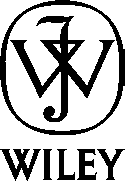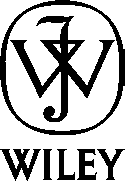The Complete Book of Intelligence Tests : 500 exercises to improve, upgrade and enhance your mind strength
Authors: Philip Carter
Tags: #0470017740.pdf




K:/Books/1387jw/0470017732/fmatter/text_s/
The IQ Workout Series
THE COMPLETE
BOOK OF
INTELLIGENCE
TESTS
Philip Carter
K:/Books/1387jw/0470017732/fmatter/text_s/

K:/Books/1387jw/0470017732/fmatter/text_s/
The IQ Workout Series
THE COMPLETE
BOOK OF
INTELLIGENCE
TESTS
Philip Carter
K:/Books/1387jw/0470017732/fmatter/text_s/
Copyright # 2005 by Philip Carter
Published by John Wiley & Sons Ltd, The Atrium, Southern Gate, Chichester, West Sussex PO19 8SQ, England
Telephone: (þ44) 1243 779777
Email (for orders and customer service enquiries): [email protected]
Visit our Home Page on
www.wileyeurope.com
or
www.wiley.com
Philip Carter has asserted his rights under the Copyright, Designs and Patents Act, 1988, to be identified as the author of this work.
All Rights Reserved. No part of this publication may be reproduced, stored in a retrieval system or transmitted in any form or by any means, electronic, mechanical, photocopying, recording, scanning or otherwise, except under the terms of the Copyright, Designs and Patents Act 1988 or under the terms of a licence issued by the Copyright Licensing Agency Ltd, 90 Tottenham Court Road, London W1T 4LP, UK, without the permission in writing of the Publisher. Requests to the Publisher should be addressed to the Permissions Department, John Wiley & Sons Ltd, The Atrium, Southern Gate, Chichester, West Sussex PO19 8SQ, England, or emailed to [email protected], or faxed to (þ44) 1243 770620.
This publication is designed to provide accurate and authoritative information in regard to the subject matter covered. It is sold on the understanding that the Publisher is not engaged in rendering professional services. If professional advice or other expert assistance is required, the services of a competent professional should be sought.
Other Wiley Editorial Offices
John Wiley & Sons Inc., 111 River Street, Hoboken, NJ 07030, USA
Jossey-Bass, 989 Market Street, San Francisco, CA 94103-1741, USA
Wiley-VCH Verlag GmbH, Boschstrasse 12, D-69469 Weinheim, Germany
John Wiley & Sons Australia Ltd, 33 Park Road, Milton, Queensland 4064, Australia John Wiley and Sons (Asia) Pte Ltd, 2 Clementi Loop #02 ^ 01, Jin Xing Distripark, Singapore 129809
John Wiley & Sons Canada Ltd, 22 Worcester Road, Etobicoke, Ontario, Canada M9W 1L1
Wiley also publishes its books in a variety of electronic formats. Some content that appears in print may not be available in electronic books.
British Library Cataloguing in Publication Data
A catalogue record for this book is available from the British Library
ISBN 0-470-01773-2 (PB)
978-0-470-01773-9
Typeset in 11=14 pt Garamond by MCS Publishing Services Ltd, Salisbury, Wiltshire.
Printed and bound in Great Britain by T.J. International Ltd, Padstow, Cornwall.
This book is printed on acid-free paper responsibly manufactured from sustainable forestry, in which at least two trees are planted for each one used for paper production.
K:/Books/1387jw/0470017732/fmatter/text_s/
Contents
1
Introduction
1
Aspects of intelligence
3
Intelligence quotient (IQ)
7
Test 1.1
IQ test
11
2
Specific aptitude tests
25
Section I ^ Verbal aptitude
28
Test 2.1
Synonym test A
28
Test 2.2
Synonym test B
30
Test 2.3
Antonym test A
31
Test 2.4
Antonym test B
33
Test 2.5
Analogy test A
34
Test 2.6
Analogy test B
36
Test 2.7
Classification test
38
Test 2.8
Comprehension
40
Test 2.9
Advanced verbal test A ^ multi-discipline
41
Test 2.10 Advanced verbal test B ^ anagrams
46
Section II ^ Numerical aptitude
49
Test 2.11 Numerical sequence test
49
Test 2.12 Mental arithmetic
51
Test 2.13 Working with numbers
53
Test 2.14 Advanced numerical aptitude test
56
Section III ^ Technical aptitude
60
Test 2.15 Technical aptitude test
60
iii
K:/Books/1387jw/0470017732/fmatter/text_s/
The Complete Book of Intelligence Tests
3
Logical reasoning
67
Test 3.1
Pure logic
67
Test 3.2
Progressive matrices test
70
Test 3.3
Advanced logic test
79
4
Creativity
84
Test 4.0
Creativity personality test
88
Section I ^ Imagination
91
Test 4.1
Imaginative shapes
93
Test 4.2
Wild imagination
94
Test 4.3
Creative logic
95
Test 4.4
The bucket test
101
Section II ^ Lateral thinking
102
Test 4.5
Lateral thinking test
102
Test 4.6
Lateral thinking exercises
105
Section III ^ Problem solving
108
Test 4.7
Problem-solving exercises
110
5
Emotional intelligence
114
Test 5.1
Anxious or relaxed
116
Test 5.2
Extrovert or introvert
120
Test 5.3
Optimist or pessimist
127
Test 5.4
Self-confidence
131
Test 5.5
Tough or tender
138
6
Memory
144
Test 6.1
Pattern recognition A
145
Test 6.2
Word association
145
Test 6.3
Verbal dexterity and memory test ^
anagrams
146
Test 6.4
Number=shape recognition
147
Test 6.5
Pattern recognition B
147
Test 6.6
Instructions
148
Test 6.7
Pattern recognition C
148
Test 6.8
Shopping list
148
iv
K:/Books/1387jw/0470017732/fmatter/text_s/
Contents
Test 6.9
Attention to detail
149
Test 6.10 Memorising an address
149
7
Answers, explanations and assessments
150
8
Hints
205
v
K:/Books/1387jw/0470017732/fmatter/text_s/
K:/Books/1387jw/0470017732/ch01/text_s/c01.3d
1 Introduction
Intelligence may be narrowly defined as the capacity to acquire
knowledge and understanding, and use it in different novel situations.
It is this ability, or capacity, which enables the individual to deal with
real situations and profit intellectually from sensory experience.
A test of intelligence is designed to formally study, under test
conditions, the success of an individual in adapting to a specific
situation.
There are a number of different methods which purport to measure
intelligence, the most famous of which is the IQ, or intelligence
quotient test. In the formation of such tests many psychologists treat
intelligence as a general ability operating as a common factor in a wide
variety of aptitudes.
Whilst many IQ tests measure a variety of different types of ability
such as verbal, mathematical, spatial and reasoning skills, there is now
a second school of thought in which it is believed that the earlier
definitions of intelligence may be too simplistic.
It is now becoming increasingly recognised that there are many
different types of intelligence and that a high measured IQ, although
desirable, is not the only key to success in life. Other characteristics,
such as outstanding artistic, creative or practical prowess, especially
if combined with personal characteristics such as ambition, good
temperament and compassion, could result in an outstanding level of
success despite a low measured IQ. It is because of this that in recent
years CQ (creative quotient) and EQ (emotional quotient), to name
just two examples, have come to be regarded as equally important as,
or even more important than, IQ measurement.
1
K:/Books/1387jw/0470017732/ch01/text_s/c01.3d
The Complete Book of Intelligence Tests
It should also be pointed out that having a high IQ does not mean
that one has a good memory. A good memory is yet another type of
intelligence, and could result in high academic success despite a low
measured IQ test score.
The object of this book is to identify different types of intelligence
and bring together tests for different aspects of intelligence into one
book, and provide an objective assessment of abilities in a number of
different disciplines.
This will, therefore, give readers the opportunity to identify their
own strengths and weaknesses and thus enable readers to build on
their strengths and work at improving their performance in areas of
weakness.
As well as the identifying of such strengths and weaknesses, the
tests and exercises in this book perform another important function,
that of using and exercising the brain.
Despite the enormous capacity of the brain, we only use on average
2% of our potential brainpower. There is, therefore, the potential for
each of us to expand our brainpower considerably.
It is important that we continually use our brain, for example, the
more we practise at tests of verbal aptitude, the more we increase our